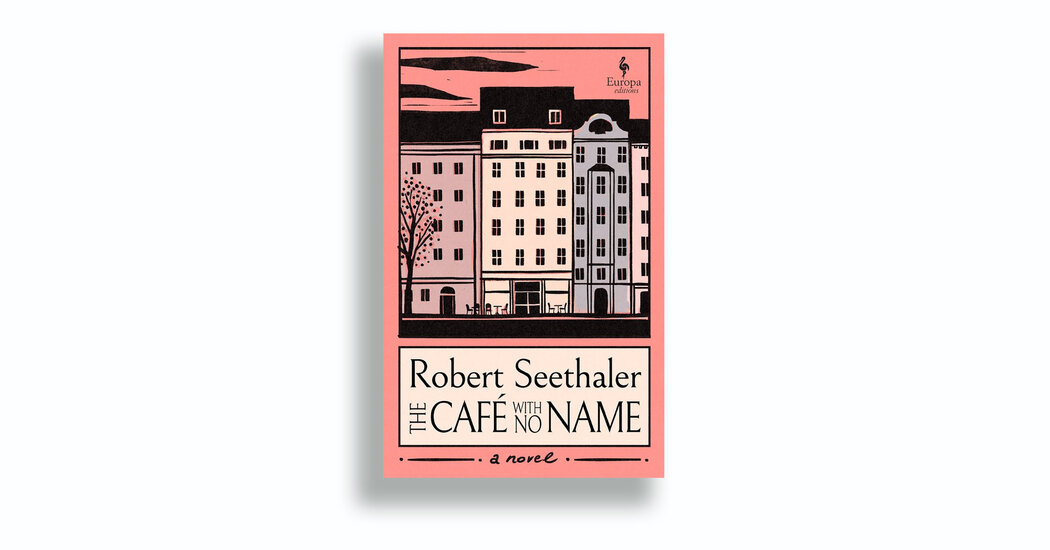Our recommended books this week include three excellent memoirs covering a range of experiences, from the horrors of Indian boarding schools to the world of New York restaurants and the heights of Hollywood glamour. We also recommend a riveting narrative history of the Revolutionary War, a scathing argument against pop culture’s anti-feminist turn and, in fiction, engaging new novels in the horror and historical fiction genres. Happy reading. — Gregory Cowles
Sour Cherry
by Natalia Theodoridou
This literary horror novel, centered on a young, motherless nobleman and the wet nurse who becomes his caretaker, is a murder ballad sung in a dark room — it’s slow, haunting and strangely beautiful. Overall, this novel is about how inner darkness plagues generations of men of a peculiar family, and the impact that has on everything around them. And while the cursed lineage trope can be clichéd, Theodoridou’s lyrical prose takes otherwise disposable lines and turns them into poetry. Read our review.
The Golden Hour:
A Story of Family and Power in Hollywood
by Matthew Specktor
In this rich, atmospheric and unsentimental memoir (his second), Specktor recounts his father’s long and successful career as a Hollywood superagent — Fred Specktor, now in his 90s, still represents stars including Morgan Freeman and Danny DeVito — and reminisces about growing up in the distorting glow of the movie business, with its quiet grind of deal-making, false starts, fragile egos, hope and disillusionment. “The Golden Hour” takes on an appropriately retro, hard-boiled texture as it delineates the ways that, at least in Specktor’s experience, life and the movies are in a state of permanent overlap.
I Regret Almost Everything
by Keith McNally
McNally’s breezy memoir has a personable, confiding tone — the restaurateur, whose landmark New York establishments include the Odeon, Café Luxembourg and Balthazar, confesses to a long and amusing list of pet peeves (including the word “restaurateur”) and celebrates the friendships and family connections that have enriched his life. But against the wisdom of the ages, he says it was work, not family, that got him through an existential health crisis, the stroke that tore his life in two in 2016. Beneath the surface chop, and the bohemian restaurant detritus, “I Regret Almost Everything” is about a working-class kid who grew up poor in the East End of London before scaling the heights of New York society. Against that inspirational backdrop his willingness to linger on his failures and defeats gives his book a gratifying measure of soulfulness and gravitas. Read our review.
The Fate of the Day:
The War in America, Fort Ticonderoga to Charleston, 1777-1780
by Rick Atkinson
There is no better writer of narrative history than the Pulitzer Prize-winning Atkinson, who is able to transport readers to a different time and place without minimizing the differences of the past from the present. This book — the second in his planned trilogy about the American Revolution — offers an exceptional chronicle of the middle years of that multifront war, showing (among other things) how George Washington matured as a commander, why Benedict Arnold sold his allegiance and how King George struggled as his generals repeatedly failed to draw the ruinously expensive conflict to an end. The book is so compulsively readable that despite its length — around 800 pages — it’s difficult to put down. Read our review.
Medicine River:
A Story of Survival and the Legacy of Indian Boarding Schools
by Mary Annette Pember
Pember — an enrolled citizen of the Red Cliff Band of Wisconsin Ojibwe, a journalist who has reported on Native issues for more than two decades, and the granddaughter and daughter of Indigenous boarding school survivors — is perfectly positioned to write this piercing account, which is partly a history of the U.S. government’s brutal crusades to exterminate, then assimilate, Native Americans, and partly a memoir of her mother’s harrowing experience at a Catholic school where she was once whipped for taking an apple and where she emerged, in eighth grade, with hallmarks of post-traumatic stress disorder that followed her into adulthood. Read our review.
The Café With No Name
by Robert Seethaler
According to the newspapers, “a radiant future” is “rising from the morass of the past.” The inhabitants of the Vienna slum at the heart of Seethaler’s historical novel might beg to differ. Although World War II ended two decades earlier, the working-class patrons of the cafe run by a 30-ish war orphan named Robert Simon don’t seem to have emerged from its shadows. In fact, they’re content merely to have a place where “you can talk if you need to, or shut up if you’d rather.” But in Katy Derbyshire’s translation from the German, this bare-bones establishment becomes a good deal more: a gallery of vibrant characters presented with an appealing blend of understated honesty and unsentimental warmth. Read our review.
Girl on Girl:
How Pop Culture Turned a Generation of Women Against Themselves
by Sophie Gilbert
Gilbert’s social history of millennial pop culture makes a searing case that trends from the 1990s and 2000s, online and off, damaged young women in deep, dark ways. Her examples are abundant, and span genres: Across 10 rigorously researched but never stuffy chapters, Gilbert has compiled perhaps the first comprehensive examination of turn-of-the-millennium mainstream, cool-kid trends and ephemera, and how they were largely molded by those in power to sell a generation of girls and young women reality-warping lies — that self-objectification is empowerment, that disciplined conformism is a lifelong project, that sexism is comedy. Read our review.
